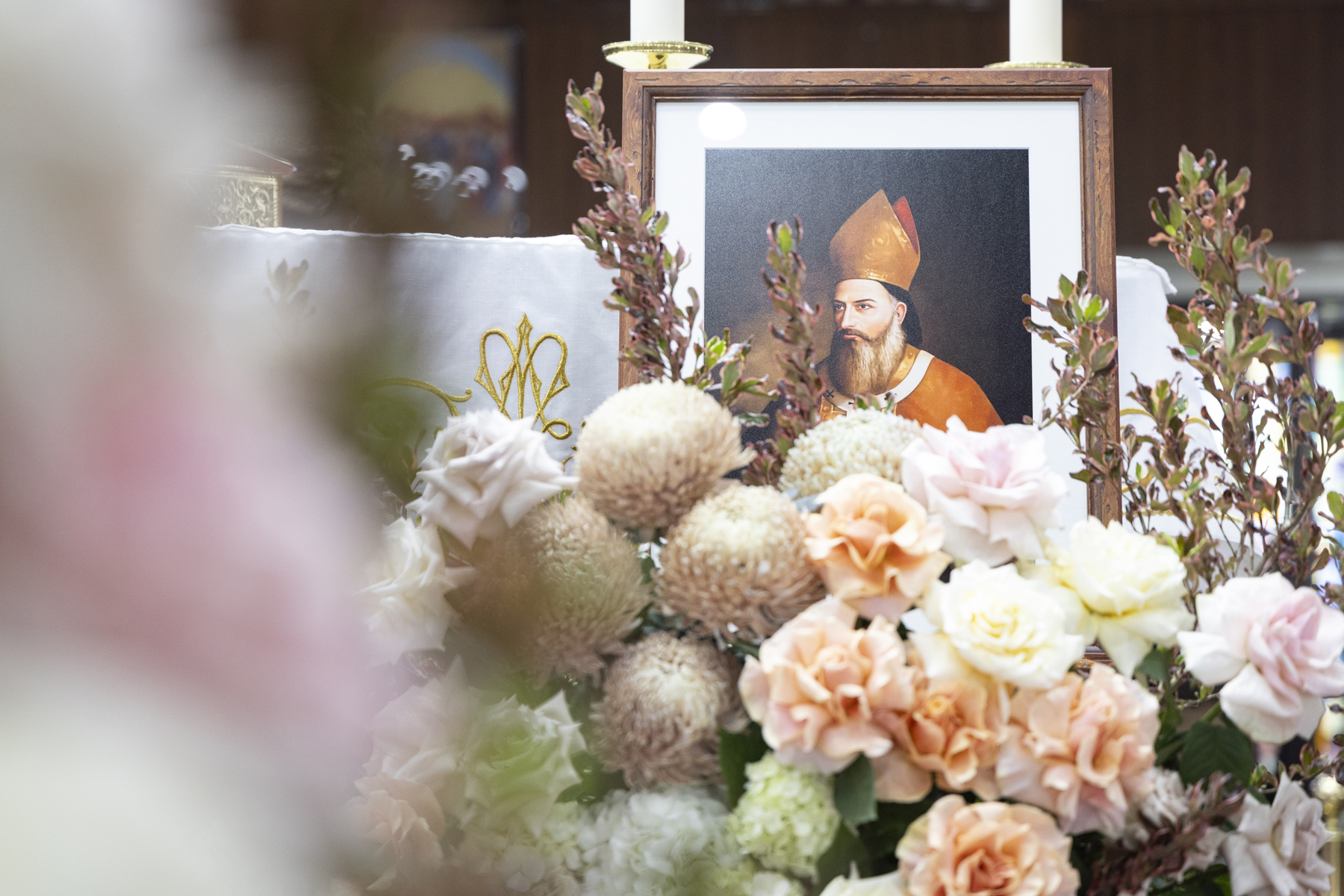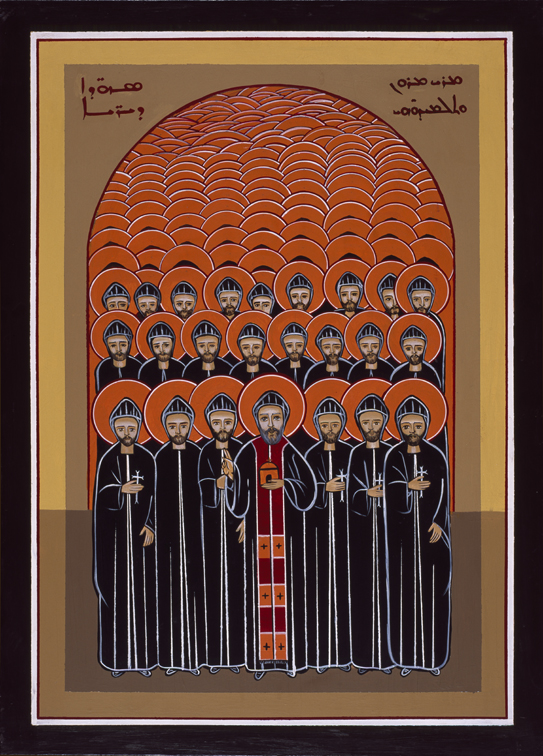By Bishop Antoine Charbel Tarabay
On Sunday 20 October 2024, I had the great joy of attending and participating in the canonisation of 14 new saints for the church by His Holiness Pope Francis. This included three Maronite laymen martyred in 1860 for their unwavering witness to their faith in Christ.
The history of the Maronite Church is rich with accounts of the holiness of saints, ascetics, hermits, monks, and nuns who answered the Lord’s call to follow him, bearing witness without ever looking back, starting with our father, Saint Maroun.
Maronite history is also marked by righteous martyrs who received the crown of martyrdom for their love of Christ. Their voices still echo; “The faith of Peter is my faith, and my faith is the faith of Peter.”
Following the beatification of Blessed Patriarch Mar Estephan Douaihy on the 2 August 2024, Pope Francis canonised, on Sunday 20 October 2024, the three Massabki brothers: Francis, Abdel Moati, and Raphael, as saints of the universal church. These brothers received the crown of martyrdom during the bloody persecution of 1860, in the Franciscan Monastery Church in Damascus, alongside Brother Manuel Ruiz Lopez and seven other Franciscan monks of the monastery.
The Massabki brothers are the first Maronite laymen to be declared saints of the Holy Apostolic Catholic Church and raised to our altars as martyrs and saints.
Coming from a prominent wealthy Syrian family, they were deeply esteemed for their piety, generosity, and devotion to the Christian faith. Despite their wealth, they lived humble and devout lives, serving the church and the poor.
Francis, the eldest, was a successful silk trader and a father of eight children. He was known for his Marian devotion, often praying before the altar of Our Lady of Sorrows, where he would eventually give his life for the faith. He represented large Maronite families, and also the Maronite Patriarch when his Beatitude needed to conduct business in Syria.
Abdel Moati was a father of five, and was also devoted to prayer and spiritual exercises, attending Mass daily and spending hours in prayer, often on his knees.
Raphael, the youngest, led a life dedicated to prayer and was often at the local Franciscan friary, remaining unmarried due to his fragile health.
The tragic events leading to their martyrdom unfolded during an anti-Christian uprising in Syria and Lebanon in 1860. With violence breaking out, the Massabki brothers, along with other Christians, sought refuge in the Franciscan monastery. There, they prayed, received the Sacraments of confession and the Eucharist, preparing for what would be their final hours.
When rioters broke into the monastery after midnight, the brothers were offered the chance to save their lives by renouncing their faith and converting to Islam, according to witnesses. Francis refused, saying, “I am a Maronite Christian and in the faith of Christ, I will die. As our Lord Jesus commanded, we do not fear those who can kill the body.” With those words, he was brutally massacred by swords and daggers.
Abdel Moati and Raphael were also seized and ordered to renounce their faith. Abdel Moati replied in a clear voice: “I am a Christian, kill me, I am ready.” Both brothers, boldly affirmed their Christian identity before being martyred.
The martyrdom of the Massabki brothers, along with the Franciscan friars, stands as a powerful testimony to the unity of blood between East and West. Their relics, intermingled with those of the eight Franciscan martyrs who died alongside them, symbolise this unity. Today, they rest together beneath the altar of the Damascus Cathedral.
This unity is also represented in the icon by artist Andrea Pucci, chosen for their canonisation and displayed at the Vatican. The icon depicts the 11 Martyrs of Damascus together around the Blessed Sacrament. At the centre, Saint Manuel Ruiz, the superior of the monastery, holds the Blessed Sacrament. Francis Massabki is shown holding the insignia of the Maronite Patriarch, Abdel Moati carries a palm branch symbolising martyrdom, and Raphael has his hands folded in prayer. The image emphasises their devotion to Christ and the strength they drew from the Eucharist before their martyrdom.
“They remained faithful servants,” Pope Francis said in his homily on Sunday. “They served in martyrdom and in joy.”
In the midst of the difficult and painful crises in Lebanon, the Holy Land, Syria, and the Middle East more broadly, a bright heavenly light shines upon us today, borne by the Massabki Brothers.
Maronite attendance at the canonisation in the Vatican was lower than we’d usually see at such joyful spiritual events, due to the ongoing situation in Lebanon, but the spirit of the Massabki Brothers shines brightly, calling us to remain faithful and hopeful.
During the canonisation Mass, I prayed fervently, asking the intercessions of these new saints for an end to the war. I asked that the land where they lived may once again become an oasis of peace and encounter.
May we follow in the example of the Massabki Brothers so that we too may become true witnesses of God’s mercy and peace in a troubled world.
Image Credit: Martyrs of Damascus by Andrea Pucci. Photo: Supplied. And, Icon of the Massabki Brothers by Fr Abdo Badwi. Photo: Supplied.




